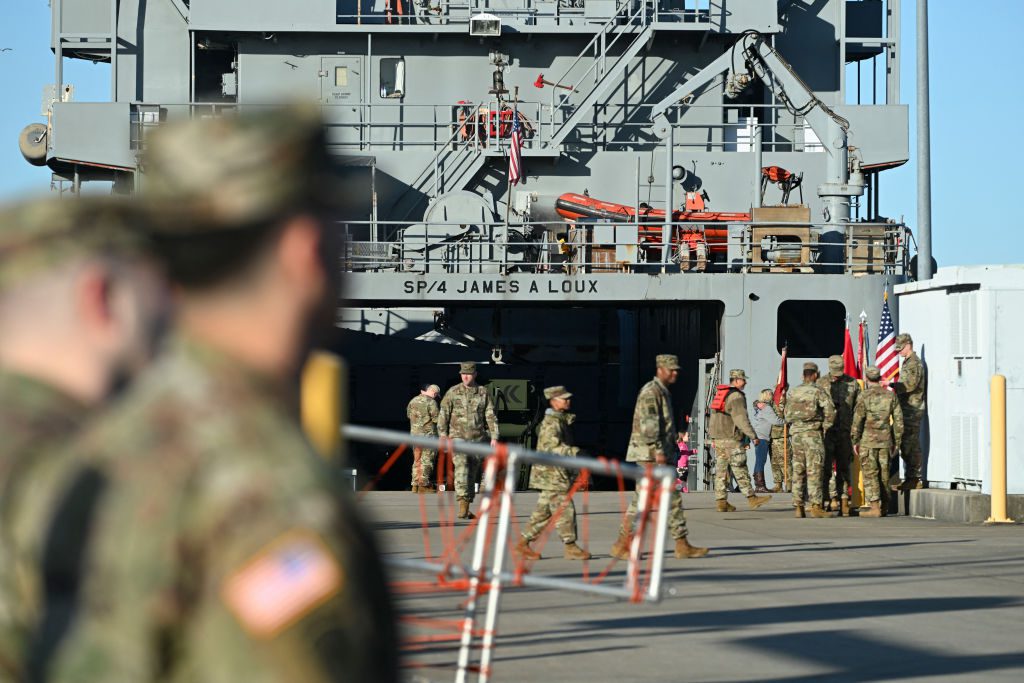Last month, the U.S. military sent a group of ships to carry out President Biden’s promise to establish a port for aid in Gaza. There is concern within Congress and the public about the situation of the 2 million residents in Gaza who are trapped in the conflict and are essentially controlled by Hamas. Congress is also worried about potential problems when the ships arrive.Some leaders in Congress are expressing doubts about the plan. There are concerns being voiced by congressional leaders about his plan. Members of Congress and the American public are understandably worried about the difficulties faced by the 2 million residents of the coastal strip.
There is understandable concern among Congress and the American public regarding the situation in Gaza.
There are valid concerns regarding the risks that distribution workers face due to the ongoing conflict and the Palestinians' desperation. stolen by HamasReports suggest that Hamas is focused on resupplying its fighters and making money from the black market rather than providing aid to starving Palestinians in Gaza. It is not surprising that Hamas is more interested in resupplying its fighters and profiting from the black market than in feeding the starving Palestinians in Gaza. There is evidence that Hamas is not prioritizing the well-being of its civilians.
Despite governing Gaza for over 15 years, Hamas has made it clear through their actions and statements that they do not consider the well-being of its civilians as their responsibility. Hamas has explicitly stated that they do not consider the well-being of its civilians as their responsibility.It is surprising that the lack of concern shown by the administration and other world leaders for the actions of Hamas, who do not prioritize the well-being of its civilians, is almost not addressed.
The problem of ensuring the aid reaches the intended recipients is not resolved simply by delivering it from the sea. Rep. Mike Rogers and Sen. Chris Coons emphasized the lack of a plan for conducting operations once the pier is ready, as well as the risk of the aid being taken by Hamas or not reaching the recipients.
Sen. Chris Coons highlighted the significant concern of security in the aid distribution effort. The major concern that is not being openly discussed is the security of the aid distribution effort. The assumption that there is no risk of unrest, disorder, or deliberate attacks during the aid distribution effort would be extremely negligent. Ships are likely to become targets for attacks..
There should be preparedness for Hamas to provoke a friendly fire incident between Israeli forces and aid distribution personnel.
None of these difficulties are impossible to overcome. However, they do involve accepting significant risk and require planning for likely outcomes and responses. Unfortunately, the administration’s approach to the conflict has increasingly leaned towards emphasizing short-term measures that please the progressive base, but ignore the consequences. Warning Israel not to attack Rafah. Pressing for a cease-fire. These may sound great, until you scratch one level deeper and realize that they all mean leaving Hamas as a viable force in Gaza.
Vague assurances that there are plans for all of this are unconvincing, particularly given the administration’s track record. As he rushes into another complex military operation, Biden would do well to reflect on Kabul. His presidency began with a disastrous exit from Afghanistan. He should be wary of ending it with an equally tragic entry into Gaza.
As our ships and the troops on them make their way across the Atlantic, Biden needs to ensure that there are answers to the questions that Congress is raising. Palestinians in Gaza need aid that actually reaches them. Without a solution for distribution, this risks becoming a reckless PR stunt that ends up resupplying Hamas. Moreover, he is sending American forces into a chaotic and crowded battlefield. There must be a robust plan for what will happen when they get there. Because one thing is certain — Hamas will have one.
Dan Nidess served as a captain in the United States Marine Corps from 2005 to 2012 with two deployments to Iraq. He has published several other articles on national security.









